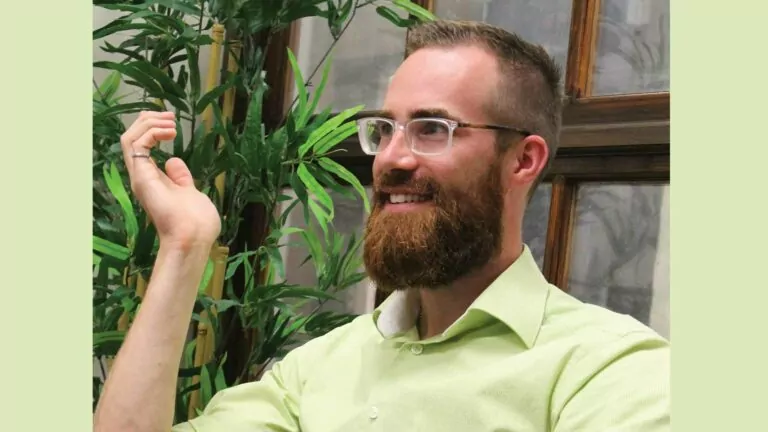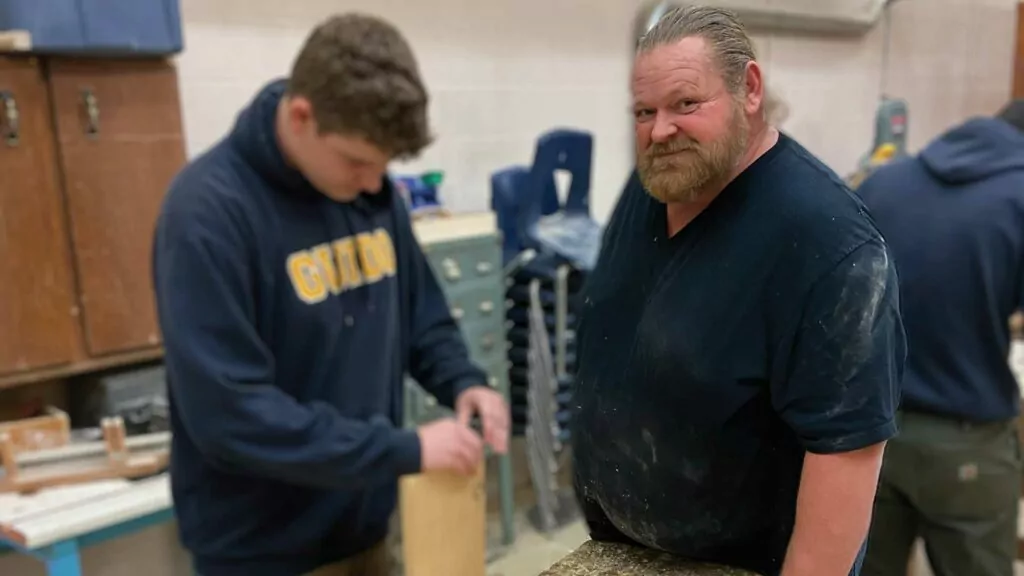There are all sorts of paths to teaching and reasons to teach, and in this interview, conducted with Mark Penninga (and lightly edited), Calvin Hutchinson offers up his own.
*****
My pathway into teaching is a fairly bizarre one.
I went to university at McMaster in Hamilton, graduating with a chemical engineering degree. With this degree, I was able to get hired by a consulting firm, and for the next little while I worked with a number of different companies doing IT management, project management, and general business analyst work.
After spending some time working in New Brunswick, I came back to Ontario and was asked to fill in at Emmanuel Christian High School (ECHS) for a teacher who had to take emergency medical leave. I finished one semester and, while I had fun helping out, I made the decision to go back to consulting as I felt that I was too close in age to the students at the time.
God wasn’t letting me leave education completely though. Shortly afterward I was asked to help out with coaching the boys’ basketball teams.
And then I joined the board of directors for ECHS. It was through this experience that I received the “management” view of the school, and realized there was a huge need for effective educators. A major part of the board’s early spring meetings, and a huge source of stress, was making sure that we had enough staff in place to even run the school for the following school year. This still happens every single year in many of the Reformed Christian schools. The private Christian education I had taken for granted my entire life seemed to actually be struggling to continue.
The story of how I decided to become a teacher again is a fairly personal one, but to sum it up, I needed a change, I saw the different talents and paths God made available to me, and saw the need for Christian educators, I listened to some advice from those much wiser than me, and decided to give teaching another chance.
It was the best decision of my life to date.
It doesn’t matter how grumpy I am in the morning, how little coffee I have had, or even if my car gets a flat tire on my way into work and everything goes wrong, whenever the students come into the class, I start to smile. Each student is completely unique, and has their own personalities and quirks that are fun to get to know and interact with. This makes teaching the same subject year after year seem completely new, as each group of students will respond to a different teaching method and delivery.
And when you are willing to create an environment where having fun while learning is the norm, then there is no end to the uniqueness that students are willing to bring to the class. I remember teaching a class on microbiology where I made an analogy comparing enzymes to turbochargers. I was told I was wrong, and received a 30-minute lecture from my students telling me why I was wrong, and on the difference between superchargers and turbochargers. A little off of the government curriculum maybe, but I guarantee that the students remember what an enzyme does.
Interactions like that happen on a daily basis, and it is amazing to experience. I have so much fun doing my job every single day, and am so grateful that God led me down the pathway to being a teacher.












